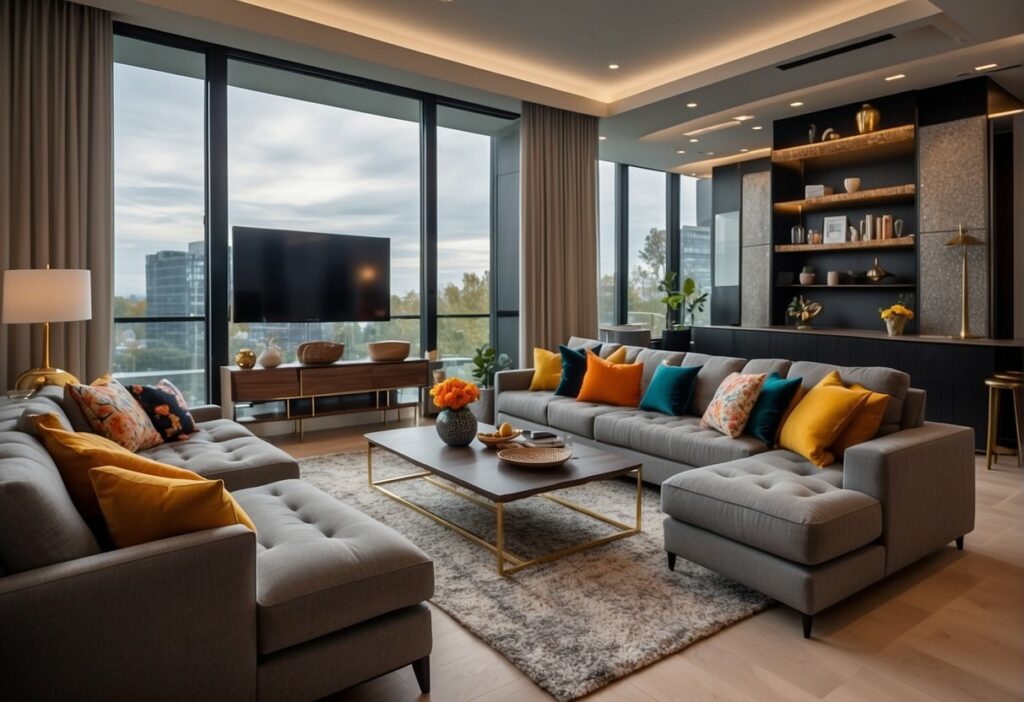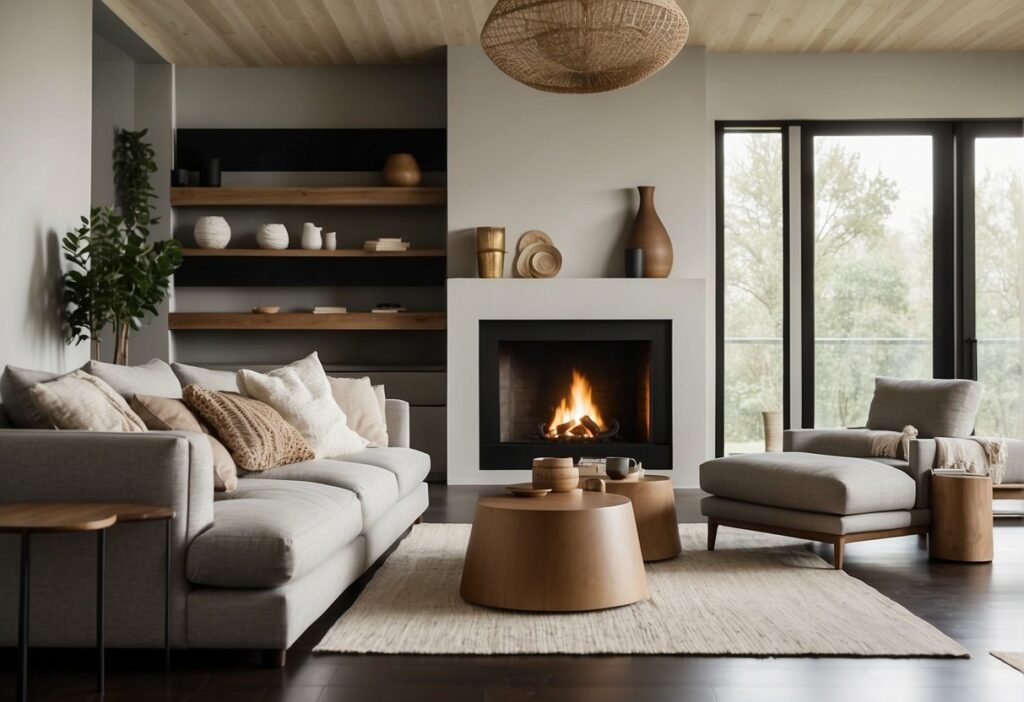How Much Should You Spend on Renovations: Tips and Tricks for Exciting Budget Planning!
Are you planning to renovate your home? One of the most important aspects of any renovation project is determining your budget. How much should you spend on renovations? This is a question that many homeowners ask themselves when planning their renovation projects.

The answer to this question is not straightforward. The amount you should spend on renovations depends on several factors such as the size of your home, the extent of the renovations, and the quality of materials you plan to use. However, there are some general guidelines that can help you determine your renovation budget.
Key Takeaways
- Determining your renovation budget depends on several factors such as the size of your home, the extent of the renovations, and the quality of materials you plan to use.
- Renovations in different areas of your home may have different costs. For example, kitchen and bathroom renovations tend to be more expensive than other areas.
- Frequently asked questions about renovation budgets include how to save money on renovations, how to finance your renovation project, and how to choose the right contractor.
Determining Your Renovation Budget

Excited about renovating your home? Before you start, you need to determine your renovation budget. Here are some steps to help you assess your financial resources, calculate renovation costs, and set priorities for spending.
Assessing Financial Resources
The first thing you need to do is assess your financial resources. Determine how much money you have available for your renovation project. Take a look at your savings, investments, and any other sources of funds you may have.
If you don’t have enough money saved up, you may need to consider financing options. Personal loans and renovation loans are two options you can explore. Personal loans are unsecured loans that can be used for any purpose, while renovation loans are specifically designed for home renovations.
Calculating Renovation Costs
Once you know how much money you have available, you need to calculate your renovation costs. Start by creating a spreadsheet to track your expenses. Include all the costs associated with your renovation project, such as materials, labour, permits, and any other expenses.
Get quotes from contractors and suppliers to get a better idea of how much your renovation will cost. Make sure to include a buffer for unexpected expenses, such as repairs or upgrades that may be required during the renovation process.
Setting Priorities for Spending
Finally, you need to set priorities for spending. Determine which areas of your home are most important to you and allocate your budget accordingly. For example, if you spend a lot of time in your kitchen, you may want to allocate more of your budget towards kitchen renovations.
Keep in mind that some renovations may add more value to your home than others. For example, kitchen and bathroom renovations tend to have a higher return on investment than other types of renovations. Consider these factors when setting your priorities for spending.
By following these steps, you can determine your renovation budget and ensure that you have the financial resources you need to complete your home renovation project.
Renovation Considerations by Area

When it comes to renovating your home, it’s important to consider each area’s unique needs. Here are some things to keep in mind when planning your renovation project.
Kitchen Upgrades
The kitchen is often considered the heart of the home, and a well-designed kitchen can add significant value to your property. When planning your kitchen renovation, consider the following:
- Materials: Choose durable materials that can withstand the wear and tear of daily use. Granite and quartz are popular choices for countertops, while hardwood and tile are good options for flooring.
- Cabinets: Consider replacing or refacing your cabinets to give your kitchen a fresh look. Built-in furniture can also be a great way to maximise storage space.
- Appliances: Upgrading your appliances can improve the functionality and energy efficiency of your kitchen. Look for models with high energy ratings to save money on your utility bills.
Living Room Enhancements
The living room is often the first area guests see when they enter your home, so it’s important to make a good impression. Here are some things to consider when renovating your living room:
- Painting: A fresh coat of paint can instantly update your living room. Consider bold colours to add personality to the space.
- Built-in furniture: Built-in shelves and cabinets can add both storage and style to your living room.
- Quality: Invest in high-quality materials that will stand the test of time. Splurge on premium materials for key pieces, such as a statement sofa.
Bedroom Refinements
The bedroom should be a peaceful retreat, so it’s important to create a space that promotes relaxation. Here are some things to consider when renovating your bedroom:
- Economical finishes: Consider using economical finishes, such as laminate flooring, to save money without sacrificing style.
- Premium materials: Splurge on premium materials for key pieces, such as a high-quality mattress and bedding.
- Painting: Choose calming colours, such as blues and greens, to promote relaxation.
Bathroom Improvements
The bathroom is one of the most frequently used areas in the home, so it’s important to make sure it’s functional and stylish. Here are some things to consider when renovating your bathroom:
- Plumbing: Upgrading your plumbing can improve the functionality and energy efficiency of your bathroom.
- Fixtures: Replace outdated fixtures with modern, energy-efficient options.
- Masonry and carpentry: Consider adding built-in storage to maximise space in your bathroom.
Remember, when planning your renovation project, it’s important to consider both quality and cost. By investing in high-quality materials and finishes, you can add significant value to your property while creating a space that you’ll love for years to come.
Frequently Asked Questions

What’s the typical amount to invest in a home makeover per square metre?
The amount you should invest in a home makeover per square metre varies depending on the type of property and the extent of the renovation. According to MoneySmart.Sg, the average cost of renovating a 4-room HDB flat in Singapore ranges from $30,000 to $80,000. This means that you can expect to spend between $600 and $1,600 per square metre for a typical HDB flat renovation.
What’s the average outlay for refurbishing a four-room resale flat?
The average cost of refurbishing a four-room resale flat in Singapore ranges from $40,000 to $60,000. This includes the cost of hacking, masonry, carpentry, electrical and plumbing works, and painting. According to MSIG, the average cost of renovating a 4-room resale flat is around $43,600 to $56,000.
How much dosh should you splash on a four-room BTO revamp?
The cost of renovating a four-room BTO flat in Singapore ranges from $20,000 to $50,000. This includes the cost of hacking, masonry, carpentry, electrical and plumbing works, and painting. According to SingSaver, the average cost of renovating a four-room BTO flat is around $30,000 to $50,000.
What’s the ballpark figure for a comprehensive renovation in Singapore for the current year?
The cost of a comprehensive renovation in Singapore varies depending on the type of property and the extent of the renovation. According to MoneySmart.Sg, the average cost of renovating a 4-room HDB flat in Singapore ranges from $30,000 to $80,000. However, the cost of a comprehensive renovation for a private property can be much higher.
Can you break down the costs involved in a full-scale renovation project?
A full-scale renovation project typically involves hacking, masonry, carpentry, electrical and plumbing works, and painting. The cost of each of these components varies depending on the extent of the work required. According to HomeTrust, you should allocate around 30% of your budget for hacking, 20% for carpentry, and 10% for electrical and plumbing works.
What parts of a renovation are likely to gobble up the most funds?
Carpentry and hacking are the two components of a renovation project that are likely to consume the most funds. Carpentry includes the cost of building customised cabinets, wardrobes, and other furniture, while hacking involves the removal of walls and other structures to create a more open floor plan. According to Swiss Interior, carpentry typically accounts for around 20% of the total renovation cost, while hacking can account for up to 30%.



